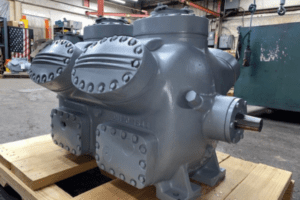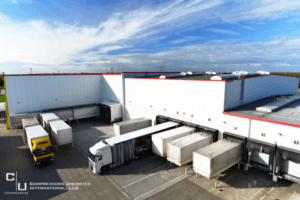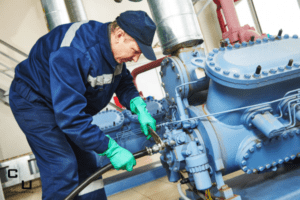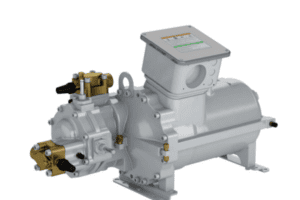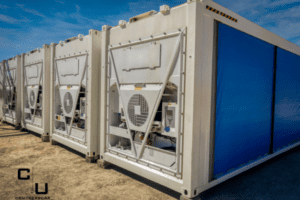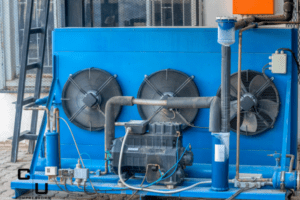A weird smell in your HVAC system is a double whammy for you and those who rely on the system.
Things could be worse: At least you can be sure there’s airflow going through your ducts. But if you are getting complaints about a “rotten egg smell” or any other strange odors, it’s a problem that has to be solved sooner rather than later. And it’s not always so easy to figure out.
Luckily, there are some common smells that are easier to identify than others.
Yes, it might not be much comfort to co-workers, tenants, or the public, but some of those odd smells aren’t really that significant. Even if you have been doing all the commercial HVAC maintenance you should, you can still run into issues that might bring a weird smell to them.
A lot of the time, these odors give you all the clues you need to fix them.
You just have to follow your nose!
So, without further ado, let’s take a big whiff of some of the most common weird commercial HVAC odors.
Four Weird Commercial HVAC Odors You Can Get to the Bottom of In One Day
There are four common odor problems in commercial HVAC systems, and three of them indicate a one-day maintenance job. Just bear in mind that as soon as you smell anything strange coming through the HVAC, you should get to work on it right away. These problems get worse over time, not better!
Here’s what to know:
1. Smoldering or Burning Smells
A dirty condenser coil is your most likely culprit when you notice a burning smell. The condenser coil can hinder airflow throughout the system all by itself, even when everything else is working fine. Cleaning a coil takes only a few minutes and will usually treat the issue 100%.
2. Oil Smells
There are three reasons you might be detecting the smell of oil in the air: You have an oil leak, a loose fitting, or a clogged filter. A major oil leak can be a sign of damage to your compressor, so check on the compressor unit first. Ensure it is running normally, with no unusual sounds or stronger smells.
It may be possible to detect an oil leak through a visual inspection, even when the leak itself is small. Disable the system and ensure that pressure is equalized before you proceed. A leak detection solution can help you pinpoint the leak’s exact location by making it possible to spot foam or bubbles.
Both the evaporator coil and the condensing coil should be checked for leaks. Cover the condensing unit with a tarp and “sniff” with an electronic leak detector underneath the tarp for ten minutes. Check twice to verify your findings: Two positive hits indicate a leak, while two negative hits rule it out.
For the evaporator coil, locate an opening in the condensation drain beneath the coil. Place your leak detector in the drain pipe and monitor it for ten minutes. If there is a leak, you’ll get a positive hit during this time as refrigerant migrates down the pipe. Always remember to check twice.
3. Electrical Smells
An electrical smell can be a crisis, so it’s important to check the most hazardous possibility first, even though it is not the most likely culprit. Examine your HVAC motor and make sure it is not producing any signs of distress, like noise or heat, and the smell is not stronger in the motor’s vicinity.
If the motor has been ruled out, check the filter next. Cleaning or replacing the filters according to the maintenance best practices for your system is the next step. If the filter is responsible, this will resolve the smell promptly. But what if you continue to detect an electrical smell?
This can indicate a wiring problem somewhere in the building that needs attention from a licensed electrician. Faulty wiring can lead to spikes and surges that damage sensitive equipment, even when there’s no discernible difference in your lighting or how your HVAC is performing.
4. Musty or Rotting Smells
Musty odors in your HVAC system may indicate mold or mildew. These can be hazardous to human health but will usually take some time to make their effects known. Historic buildings with narrow ductwork are especially in danger, since it is easy for clogs to develop.
A rotting odor with a sudden onset might mean wildlife has infiltrated the system or eliminated somewhere nearby. Check your rooftop equipment to make sure any organic waste is removed promptly. If smells persist, check your building’s ducts.
If you trace an issue to your compressor, remember that a remanufactured commercial compressor can get you back in action weeks sooner, often at a fraction of the cost. That helps you recover with ease from any equipment failure.


